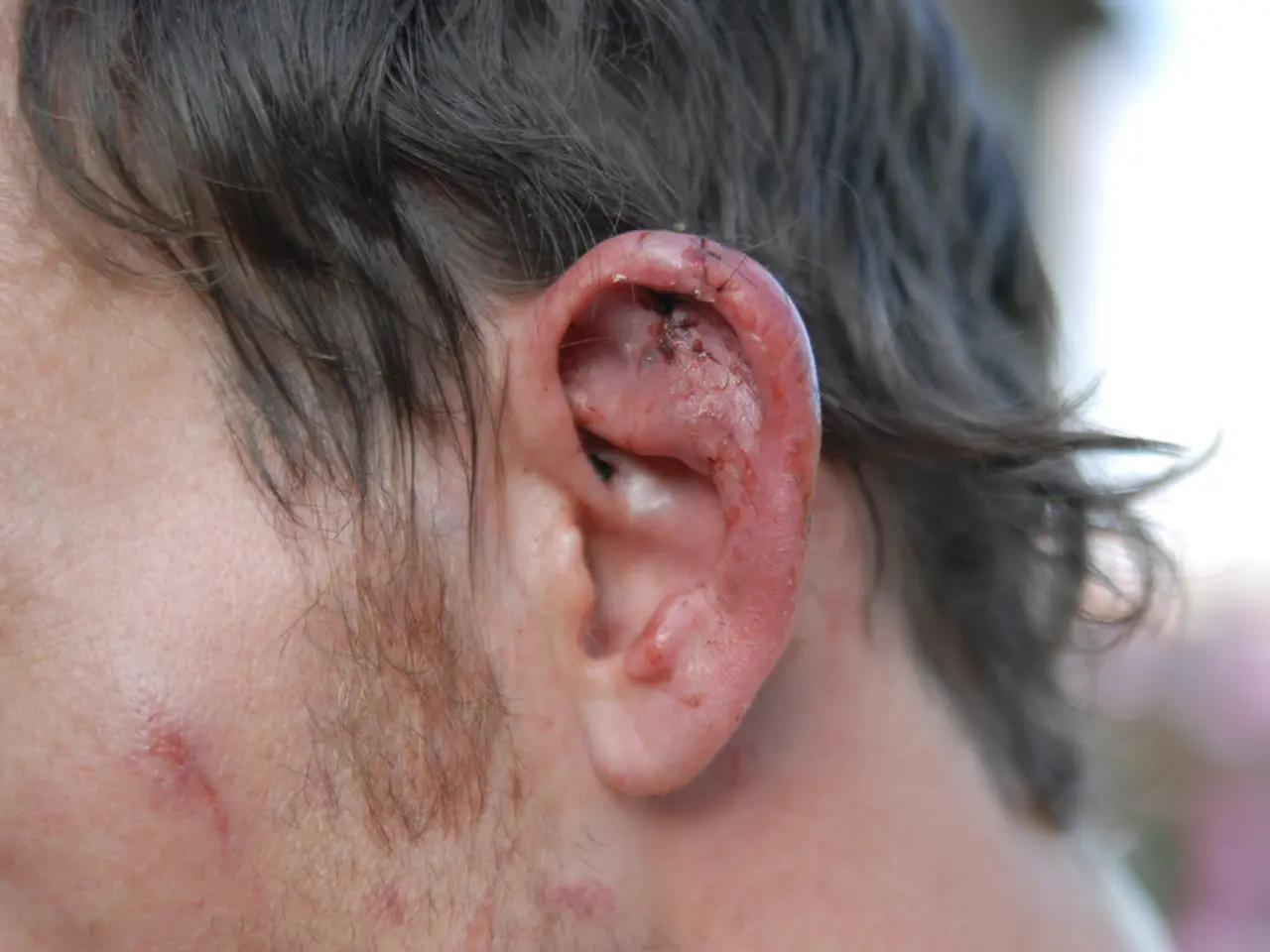Experiencing a late period and finding a negative pregnancy test: Potential reasons and prevalence
In the realm of menstrual health, short-term missed periods can be a cause for concern for many individuals. This article aims to shed light on the common factors that contribute to such irregularities, focusing on stress, weight changes, and hormonal imbalances.
1. **Stress** - High or chronic stress can disrupt the brain's signals that regulate the menstrual cycle, affecting hormone production, particularly cortisol. This disruption can delay or halt periods[1][2][3]. - Both emotional and physical stress, such as illness or intense exercise, can alter reproductive rhythms, causing skipped or irregular periods[2][3].
2. **Weight Changes, Particularly Due to Eating Disorders** - Extreme weight loss or malnutrition, commonly observed in eating disorders, can lead to insufficient body fat needed for hormone synthesis, causing ovulation to stop and menstruation to cease temporarily[1][4]. - Conversely, significant weight gain can increase estrogen production from fat tissue, which may prevent the uterine lining from shedding, disrupting the cycle[3][4]. - Excessive exercise, often associated with eating disorders or intensive athletic training, can further exacerbate amenorrhea (absence of periods)[1][4].
3. **Hormonal Imbalances** - Conditions like polycystic ovary syndrome (PCOS), thyroid disorders (hypo- or hyperthyroidism), and prolactin imbalances interfere with the normal balance of estrogen and progesterone, leading to infrequent or missed periods[1][2]. - Birth control changes and other medications can also impact hormone levels and cycle regularity[2][3][4].
It's essential to remember that short-term missed periods can stem from the body's sensitive hormonal balance being disrupted by these factors, which can independently or collectively inhibit ovulation or menstrual shedding, leading to irregular or absent menstruation[1][2][3][4].
If you've missed your period for more than six weeks, it's advisable to consult a doctor or healthcare professional to understand why the missed period may have occurred. A missed period with abdominal cramps can be due to delayed ovulation, PCOS, or uterine fibroids.
In addition, it's crucial to address eating disorders, as they can lead to hormonal imbalances and irregular periods. Help is available for those struggling with eating disorders; resources include the National Alliance for Eating Disorders and the Substance Abuse and Mental Health Services Administration.
Lastly, it's worth noting that home pregnancy tests can sometimes give a false negative result, especially if taken too soon or with low hormone levels. If you suspect pregnancy, it's best to confirm it by seeking medical advice.
[1] Mayo Clinic. (2021). Missed period. [online] Available at: https://www.mayoclinic.org/healthy-lifestyle/womens-health/in-depth/menstruation/art-20046256
[2] American College of Obstetricians and Gynecologists. (2020). Irregular periods. [online] Available at: https://www.acog.org/womens-health/faqs/irregular-periods
[3] NHS. (2021). Period problems. [online] Available at: https://www.nhs.uk/conditions/periods/
[4] Office on Women's Health. (2021). Eating disorders. [online] Available at: https://www.womenshealth.gov/eating-disorders
- Menopause - As women approach menopause, the decline in the production of reproductive hormones can lead to irregular periods, reducing their frequency, or even causing them to stop altogether[1]. - Menopause is considered complete when a woman has gone 12 consecutive months without a period[2].
- Cushing's Syndrome - Excessive production of cortisol, the body's primary stress hormone, due to Cushing's syndrome can disrupt the menstrual cycle, leading to infrequent periods or amenorrhea[3]. - Women with Cushing's syndrome may experience other symptoms such as weight gain, rounded upper body, and acne[3].
- Type - To understand your menstrual irregularities better, it's helpful to keep track of your menstrual cycle and to identify specific type(s) of abnormal bleeding, such as heavy or prolonged periods, or periods with clotting[1][2].
- Blocked Fallopian Tubes - Blocked fallopian tubes, often due to scarring or damage, can prevent the egg from reaching the uterus for fertilization, leading to missed periods or infertility[2]. - Having undergone surgery for ectopic pregnancies or having pelvic inflammatory disease are potential risk factors for blockages in the fallopian tubes[2].
- Atopic Dermatitis - Certain skin conditions, like atopic dermatitis (eczema), can be associated with menstrual problems due to hormonal fluctuations[3][4]. - Among the symptoms that may appear during menstruation are increased itching, inflammation, and even temporary worsening of eczema[3][4].
- Diabetes - Diabetes can affect the menstrual cycle due to altered hormone levels, potentially causing irregular periods or even amenorrhea[1]. - High levels of blood sugar can interfere with the normal functioning of the ovaries, impacting the production and release of hormones essential for the menstrual cycle[1].
- Menstrual Problems - In some cases, menstrual problems may also be indicative of an underlying medical condition that requires treatment[2]. - Regular check-ups and open communication with healthcare professionals are essential when addressing women's health issues like menstrual irregularities[2].
- Pfizer, Depression Syndrome, Health, Womens, Predictive, COPD, Science, Health-and-Wellness, Mental-Health, and Womens-Health - In the broader context addressing the wellbeing of women, healthcare industries like Pfizer invest in research to better understand menstrual irregularities, depression syndrome, and other women's health concerns to advance scientific knowledge and develop effective treatments[5]. - Mental health, smoking cessation, and COPD management also figure prominently in improving women's health, addressing the interconnected nature of health and wellness[5]. - A holistic, predictive approach to healthcare and wellness supports women in tackling the diverse challenges associated with both their physical and mental wellbeing[5].
[5] Pfizer. (2021). Women's health. [online] Available at: https://www.pfizer.com/news/womens-health




